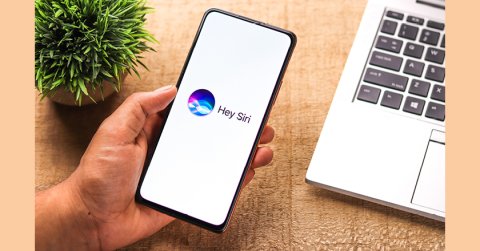
A pple continues to innovate with privacy at the forefront, Siri is poised to remain a leading digital assistant that respects user data. Apple’s relentless focus on privacy is not just a response to legal challenges; it’s a cornerstone of their product development philosophy. This dedication to security and privacy not only helps protect users but also strengthens Apple’s position as a leader in ethical technology practices
In today’s tech-savvy world, digital privacy remains a paramount concern for users everywhere. Amid growing skepticism about digital assistants and data security, Apple has reaffirmed its commitment to user privacy with recent advancements in its voice-activated assistant, Siri. These enhancements not only highlight Apple’s dedication to privacy but also set a new standard in the fiercely competitive tech industry.
A shift to on-device intelligence
Apple’s approach to privacy through Siri is rooted in its foundational design principles: data minimization, on-device intelligence, transparency, and robust security. Unlike other digital assistants that rely heavily on cloud-based processing, Siri handles a vast majority of tasks directly on the device. This method significantly limits the amount of user data transmitted to servers, ensuring that sensitive information such as message contents and personal requests stays private. For instance, tasks like reading unread messages or making suggestions through Siri widgets are processed locally on users’ devices. This not only speeds up the response time but also prevents unnecessary data exposure. Moreover, for those devices equipped with Apple’s Neural Engine, audio requests are processed entirely on-device, offering users an added layer of privacy. Apple’s strategy also involves minimizing the data collected during interactions with Siri.
The company uses random identifiers instead of tying Siri searches and requests to an Apple Account or phone number. This unique approach among digital assistants underscores Apple’s commitment to maintaining user anonymity and preventing targeted advertising based on data collected through Siri.
Legal challenges and responses
Despite these privacy measures, Apple recently settled a class action lawsuit for $95 million over allegations that its “Hey Siri” feature had unintentionally activated and recorded private conversations without user consent. The lawsuit, which stretched back to 2014, claimed that these recordings led to privacy breaches, including the sharing of sensitive health information. Apple responded to these allegations by pausing its Siri grading system, which involved human reviewers, and later reintroducing it with stronger privacy safeguards and an opt-out option. While Apple denied the accusations, the settlement included compensations for affected users, signaling Apple’s willingness to address privacy concerns proactively.
Future of Siri and privacy
With the launch of Private Cloud Compute, Apple is entering a new era for Siri. This technology extends the security of iOS devices into the cloud, enabling more advanced processing without compromising user privacy. Data processed via Private Cloud Compute is not stored or accessible to Apple, aligning with the company’s privacy-first approach. As digital assistants continue to permeate everyday life, Apple’s ongoing improvements to Siri demonstrate a clear commitment to user privacy. This commitment is vital not only for maintaining consumer trust but also for setting industry standards that others may follow.





